Systemic Racism
There remain clear racial divides in opinion regarding the causes of socio-economic disparities in America. Even though large racial gaps remain on the causes of living in poverty, there has been a striking movement among white southerners’ views since our survey 8 months ago. A majority of white respondents, 51 percent, now attribute poverty to a lack of opportunity rather than poor life choices. This is considerably less than Black respondents at 70 percent, but it marks a very striking shift among white respondents over the past 8 months (from -2 to +21 lack of opportunity/poor life choices). The 23-point shift takes place across the white respondents and is not driven by a particular demographic.
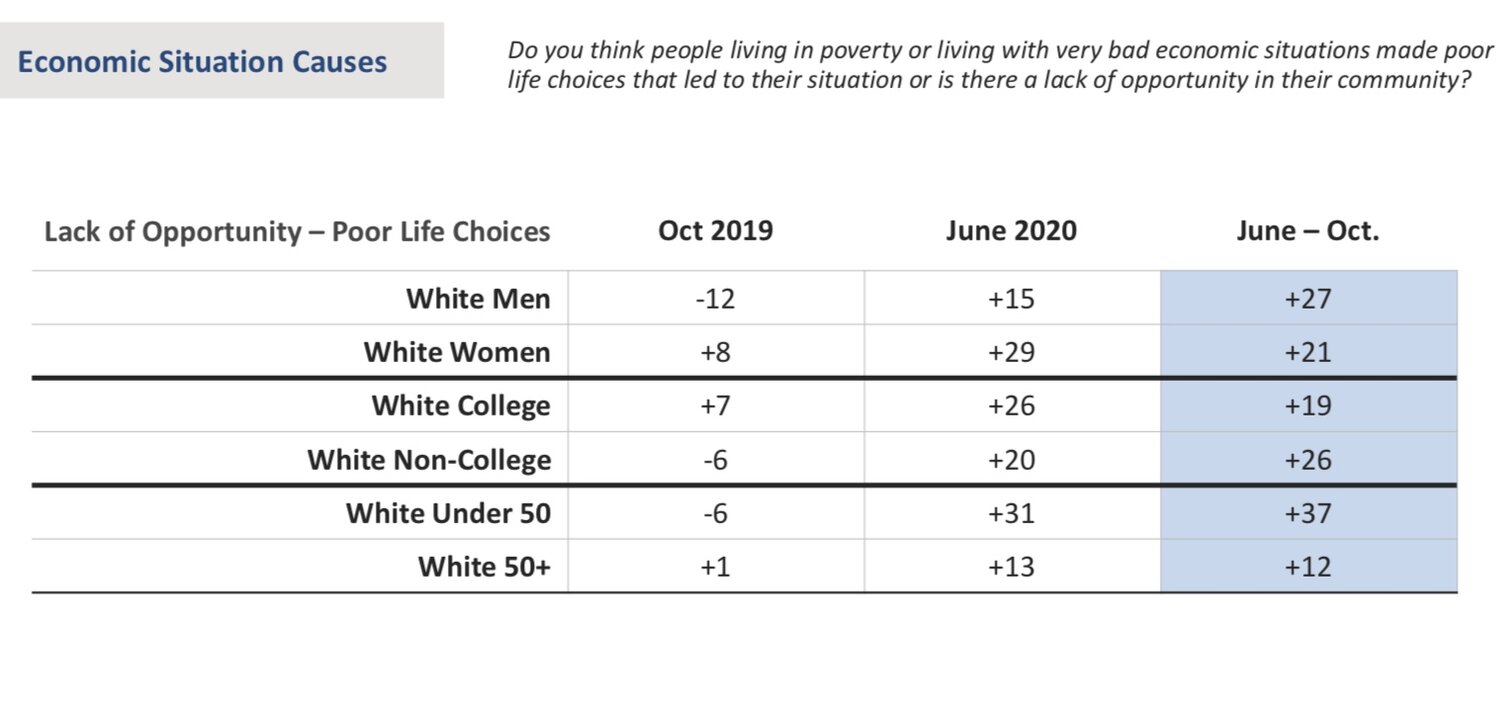
Large majorities of Black respondents (81 percent) and Latino respondents (67 percent) believe that white southerners have more economic opportunities than Black and Latino southerners, compared to only 46 percent of white southerners; however, this does reflect a modest shift in the perspectives of white respondents (from a minus 10-point yes/no margin in October to an even margin today). Rural white respondents express the strongest view that white southerners do not have more economic opportunities (minus a 38-point margin, compared to plus 4-point margins among urban and suburban white southerners). Similar to views about the economic opportunity of white southerners, there is a large racial divide on whether white southerners have better access to healthcare than Black and Latino southerners (plus 64-point margin among Black respondents, +26-point margin among Latino respondents, minus 6-point margin among white respondents).
COVID-19 in the South
Consistent with public health data, Black respondents report significantly higher levels of direct experience with family members getting sick and dying from coronavirus. Thirty-seven percent of Black respondents know someone diagnosed with coronavirus, compared to 31 percent of Latino respondents and 27 percent of white respondents. Twenty-one percent of Black respondents know someone who has died of coronavirus, compared to 12 percent of Latino respondents and 8 percent of white respondents.
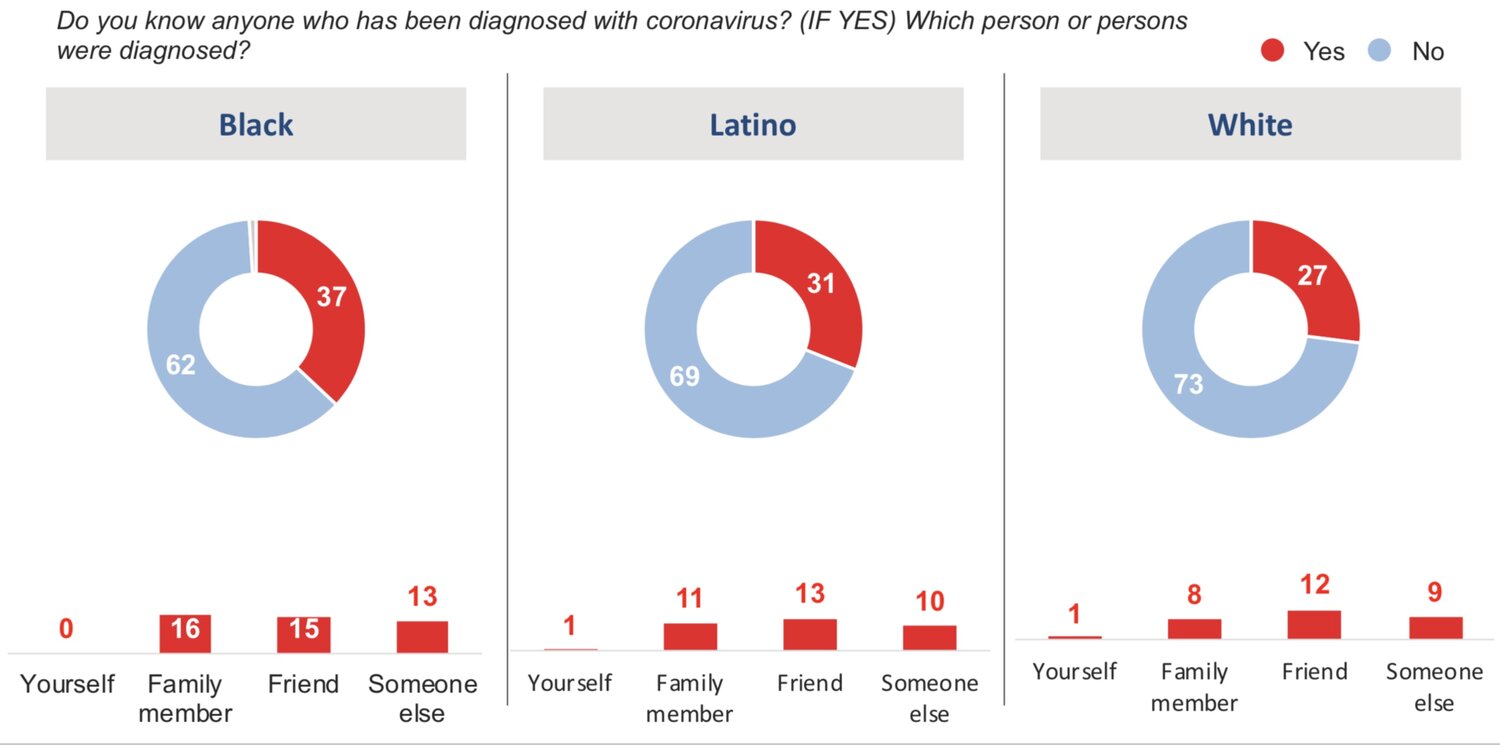
Latino southerners indicate higher levels of economic impact from the pandemic and are more likely to know people who lost their jobs or had hours/pay reduced. Sixty percent of Latino respondents know someone who lost their job, compared to 55 percent of Black respondents and 51 percent of white respondents. Fifty-seven percent of Latino respondents and their family members have had their hours or pay reduced, compared to 49 percent of Black respondents and 42 percent of white respondents. Thirty-nine percent of Latino respondents say their economic situation has gotten worse as a result of the pandemic, compared to 32 percent of Black respondents and 26 percent of white respondents.
Most people, regardless of race, are seeing news stories about racial disparities and the impact of the pandemic, and they are generally hearing that it is impacting the health and financial situation of Black people and Latino people more than white people. However, only Black respondents believe that the pandemic has had a greater impact on Black people and Latino people than white people.
When given information that Black southerners have contracted the coronavirus and died at a higher rate than the rest of the U.S. population, all three groups attribute this to historical, social, and economic factors rather than bad life choices. But there are sizable racial gaps between the proportion who believe this (70 percent of Black respondents, 60 percent of Latino respondents, and 54 percent of white respondents).
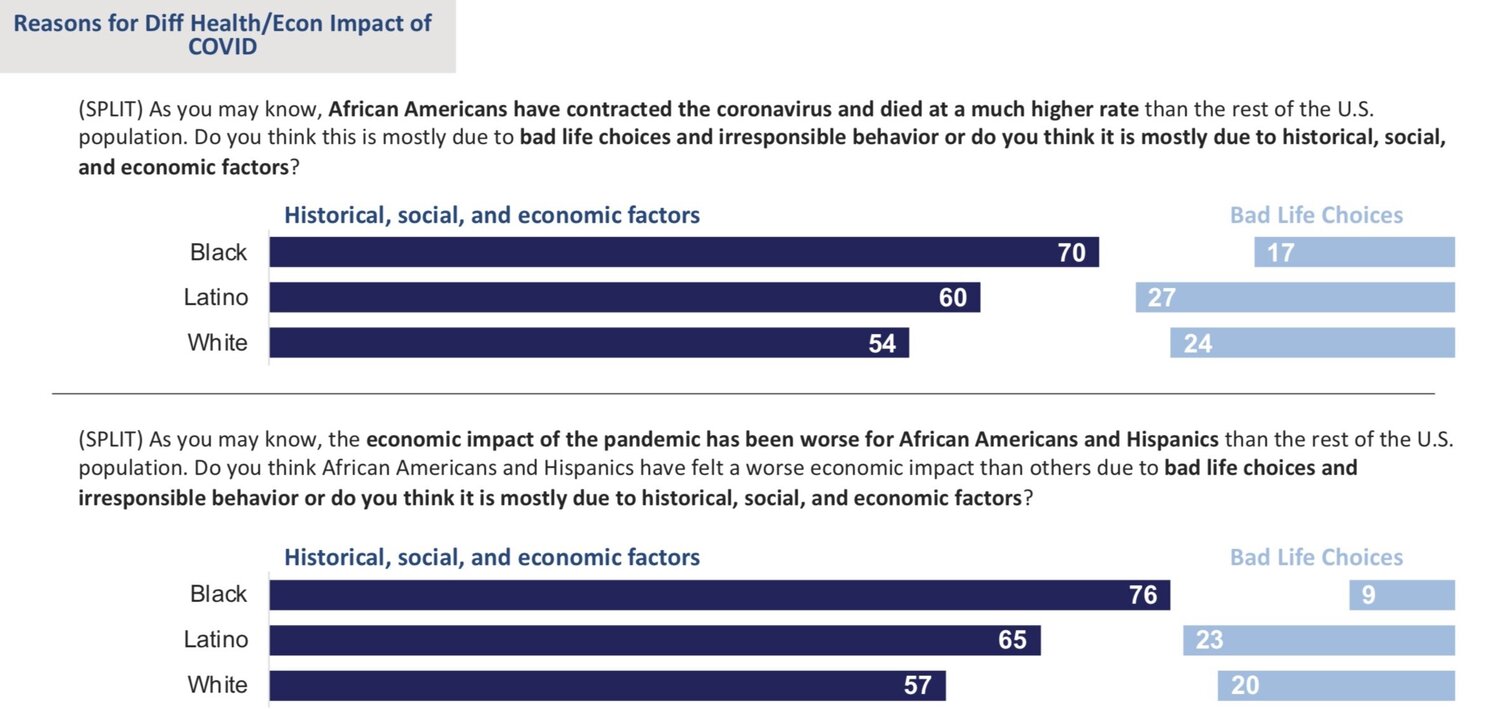
There are major differences by race on whether systemic racism plays a role in pandemic disparities. Sixty-four percent of Black respondents believe systemic racism plays a big role in why the pandemic is hurting Black southerners more than other Americans, compared to 52 percent of Latino respondents and 43 percent of white respondents.
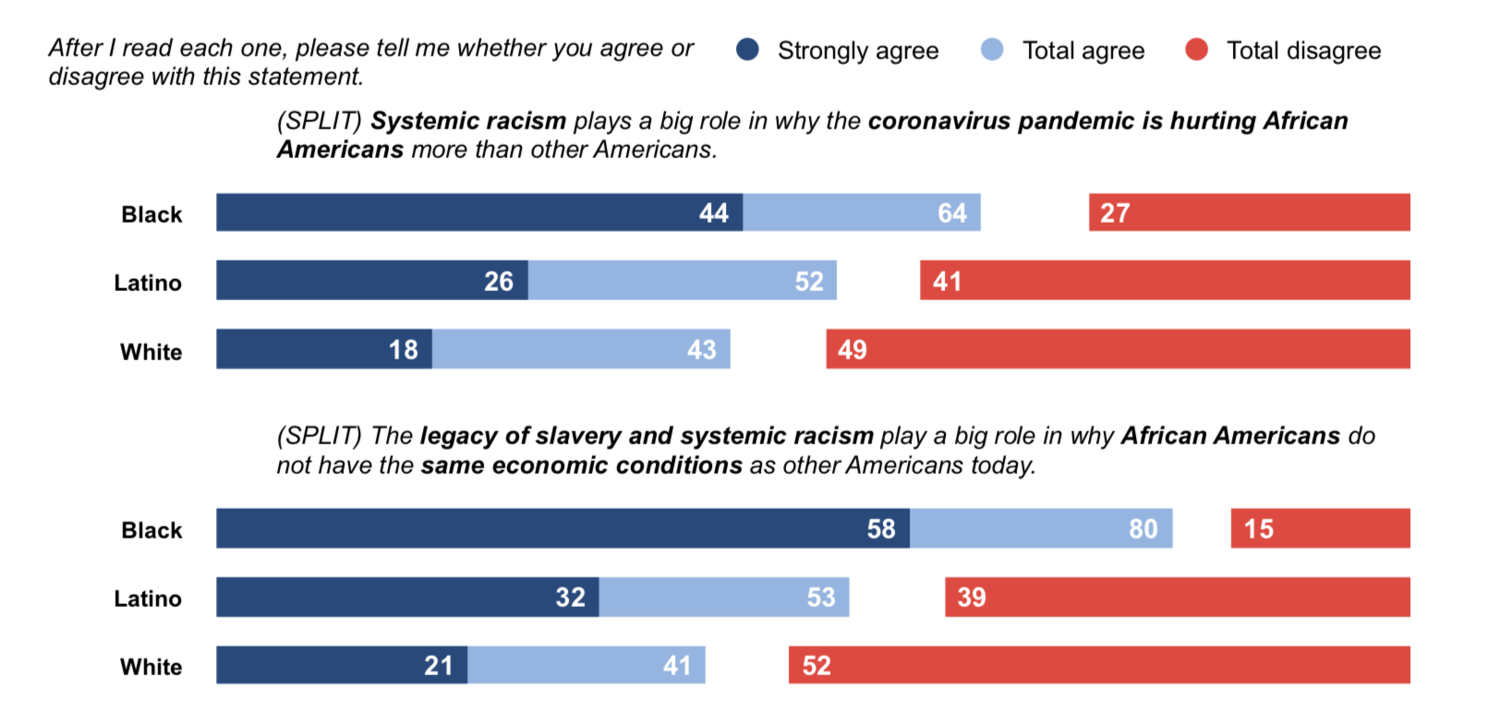
On the question of whether to make big systemic changes to address inequities exposed by the coronavirus or to just take steps to restore systems as quickly as possible, racial gaps remain (Black respondents +16, Latino respondents -2, white respondents -31).
Looking to pandemic recovery, the top policy proposals strongly supported across race centers on expanding emergency supports like SNAP, expanding paid leave, and creating new infrastructure jobs.
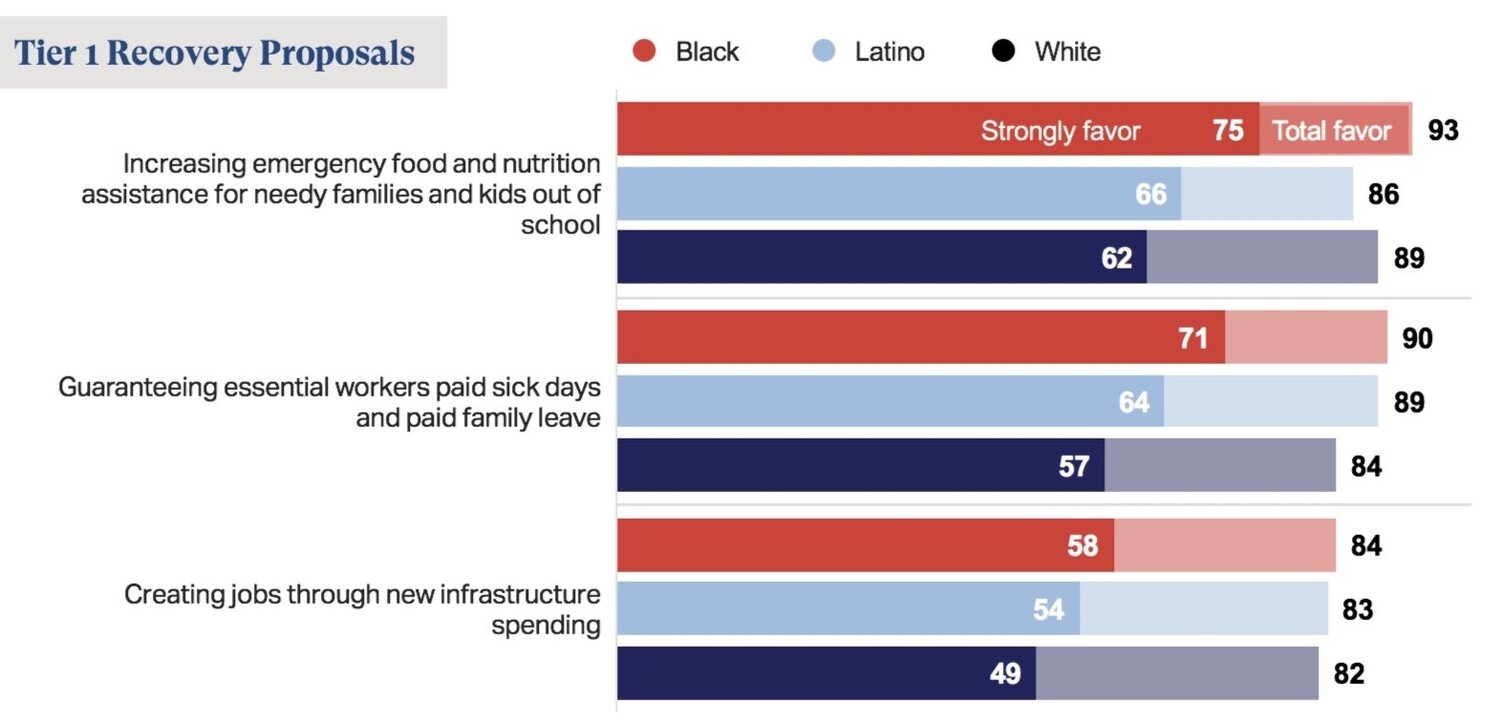
GBAO Strategies of Washington, D.C. conducted the survey on landlines, cellphones, and an online panel from May 26 to June 2, 2020. Latino respondents were given the option of taking the survey in English or Spanish. The margin of error for each racial group is +/- 4 percentage points at the 95 percent confidence level.
